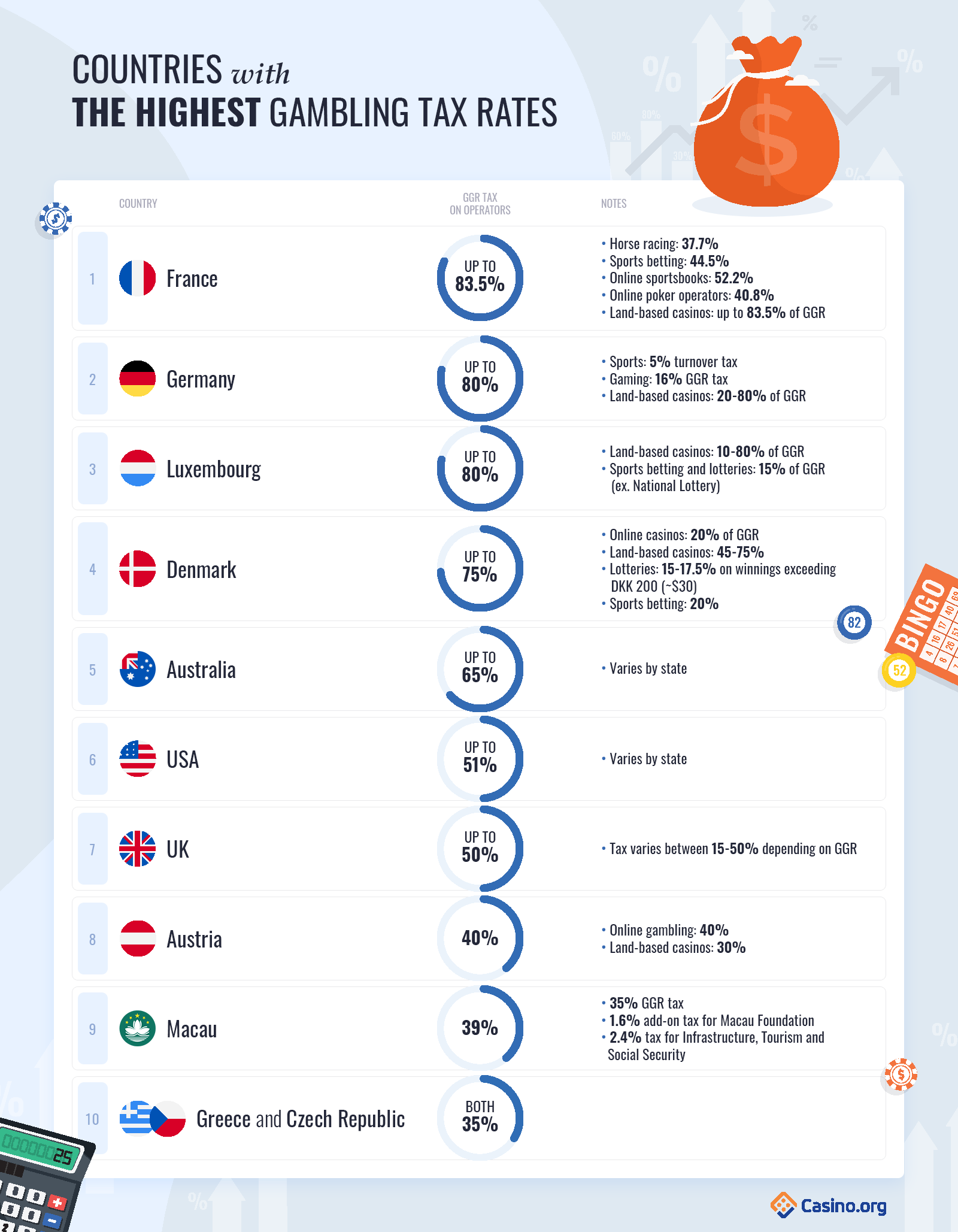Gambling Tax South Africa

South Africa: Africa Tax. Under an assessment issued or a return submitted on or before 31 October 2020 under the Income Tax Act, the VAT Act and the Gambling. The National Gambling Board estimates that 17.5% of the gambling population engages in illegal gambling activities. The Casino Association of South Africa (CASA) estimated that in 2016, illegal gambling cost the government R140 million in lost tax revenue. Best Western Gambling Tax In South Africa 2020 Inn Gambling Tax In South Africa 2020 Casino Hotel. When you stay at Best Western Plus Prien Lake Inn & Suites in Lake Charles, you'll be in the suburbs and convenient to Prien Lake Mall and Imperial Calcasieu Museum. BE IT ENACTED by the Parliament of the Republic of South Africa, as follows:— Definitions 1. (1) In this Act, unless the context indicates otherwise— “Administration Act” means the Interactive Gambling Tax (Administration) Act, 2008; “interactive gambling tax” means the interactive gambling tax imposed by this Act.
Tax Victory for KenyanBetting Operators

In the latest news from Kenya’s sports betting industry, Nairobi’s Tax Appeals Tribunal has sided with Betin and SportPesa. This is according to reports in the 7 November edition of African news site Business Daily.
The Tribunal is said to have agreed with the operators that the new 20% Kenyan betting tax be applied only to net winnings and not, as was originally stipulated, to bettors’ actual stakes.
Kenya’s Changing BettingLaws
In May 2019 Kenya’s newer, stricter GamblingBill wasunveiled. The aim of this piece of legislation is to protect customers, supporthealthy gambling behaviour and generate government income in the form ofgambling tax revenues. A 10% tax increase actually took effect on 1 July 2018,and the Kenya Revenue Authority (or KRA) has been after local operators to payup since then.

The KRA’s initial amended definitionof winnings was that it was all monies paid to winning bettors, including thereturn of the original stake. Until all outstanding taxes were paid, thecountry’s 29 legal bookmakers were suspended by the Betting Control andLicensing Board, or BCLB. This took effect on 1 July 2019.
Companies disagreed with the original amended definition, although SportPesa and Betin did ultimately comply in order to be allowed to resume local operations. Before settling their “outstanding debts” they had been forced to lay off hundreds of members of staff and to suspend their business dealings in Kenya.
Then on 19 September 2019 the KenyanParliament’s Finance Committee proposed the 20% excise rate for the 2019/2020budget. The proposal was voted through almost a week later, on 25 September.This is what SportPesa and Betin appealed against with the Tribunal.
The Tribunal’s Ruling


In addition to saying that the 20%tax applies to net winnings only, the Tax Appeals Tribunal has also ruled thatindividual bettors must take more responsibility for tax remittance. The onusno longer falls on the operators to the same degree. Insiders explain that theTribunal’s intention is to shield sportsbooks from prosecution by what is nowconsidered a very aggressive government administration.
The Future Remains Unclear
Although SportPesa and Betin wereable to resume their Kenyan activities after settling debts, while the issuesthat the Tribunal ruled on were still unresolved they could not operator atfull capacity. Now, in the wake of the Tribunal’s findings, the BCLB has saidthat any suspended businesses will need to apply for brand new licences.
Gambling Tax South Africa 2019
As the betting industry in Kenya and aroundAfrica continues to mushroom, bolstered by the mobile technologyrevolution, authorities continue to seek gambling tax revenue as a way tobolster their coffers. In the past week, the KRA set its sights on Betika andsought Sh1.75 billion (or $17 million) in outstanding taxes.
Gambling Tax South Africa Population
Since Betika was among the few BCLB-licensed firms that imposed KRA’s original tax amendments, the fact that the KRA has now gone after them could be perceived as very mercenary. Of course, if the monies gained from revenues really do benefit ordinary Kenyan citizens, there will be few criticisms leveled at the government for imposing the taxes. Whether that will indeed be the case remains to be seen.